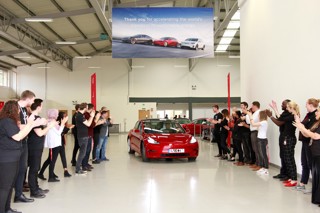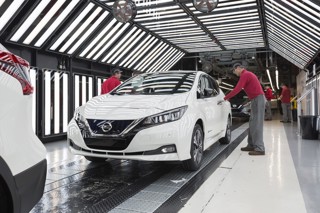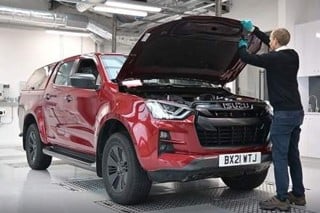Cox Automotive has published a prediction that new car registrations will increase by 14.1% this year.
The organisation believes registrations for new vehicles could reach 506,804 by the end of Q1 - a 19.1% increase year-on-year, but 23.7% down compared to the 2000-2019 average and 27.7% down compared with the most recent pre-pandemic 2019 performance.
Cox Automotive's most likely scenario forecasts that the year will end on 1,878,806 registrations. This is a 14.1% increase year-on-year, but 18.7% down compared to the 2000-2019 average and the most recent 2019 pre-pandemic performance.
New car registrations rose just 1% in 2021 as tougher trading arrangements, accelerating technology shifts and decimated supply stalled the sector’s recovery from COVID-19.
Data from the Society of Motor Manufacturers and Traders (SMMT) showed that 1.65 million cars were registered in the UK last year, leaving volumes 28.7% down on pre-COVID trading in 2019.
An 18.2% decline in December registrations resulted in the sector’s second-worst year of new car registrations since 1992 and SMMT chief executive, Mike Hawes, warned that the challenges faced last year look set to continue in 2022.
Philip Nothard, Insight and Strategy Director at Cox Automotive, said: "The start of a new year is often seen as an opportunity to start anew, to move on from the trials and tribulations of the previous year and set our sights on a better future.
“This is undoubtedly the case in the automotive industry after more than a year, dogged by new car production issues, increased lead times and skyrocketing used car values. However, while retailers have remained resilient and adapted to today's trading environment, there's still no sign of an immediate return to normal."
He warns that the hopes of material shortages improving in early 2022 have rapidly fallen away and that the automotive sector is unlikely to see much improvement until at least early 2023.
While the microchip and material shortages continue to affect the production of new cars and vans worldwide, some manufacturers have managed to increase production to the extent that sales targets were hit. Recoveries were very manufacturer-specific, however, and Nothard said the industry cannot expect normal volumes to return until 2023.
MG, Audi, Kia and Polestar featured among 2021’s new car registrations winners as Tesla’s Model 3 ended 2021 as the UK’s second best-selling car with registrations almost three-times that of the next most popular EV.
He added: "Microchip shortages are causing a major headache but transitioning to Electric Vehicles (EVs) also impacts supply chains. Factories must be reconfigured to accommodate EV production and other alternatively fuelled vehicles. These changes don't happen overnight, but they are necessary to move towards cleaner and greener personal transportation."
New mobility division targets fleets and EV battery management
Cox Automotive has launched a new global division – Cox Automotive Mobility – targeting emerging transport technologies.
It will guide the growth of mobility-focused digital and physical services, product development and investments throughout the US, UK, Continental Europe, Canada and Mexico, with additional geographic expansion planned in the future.
The announcement of the new global division follows a historic 12 months during which Cox Automotive made several strategic acquisitions, including Spiers New Technologies and FleetMaster. Designed to service OEMs, dealers, mobility and fleet providers, Cox Automotive Mobility encompasses four business solution areas – Fleet Services, Fleet Operations, EV Battery Solutions and Emerging Ventures.


















Login to comment
Comments
No comments have been made yet.